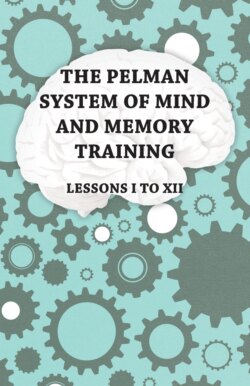Читать книгу The Pelman System of Mind and Memory Training - Lessons I to XII - Анон - Страница 64
На сайте Литреса книга снята с продажи.
Degrees of Memory.
Оглавление21. Taking the men of the business world as a whole, their memory powers may be represented by the figure following:
There is no man who has no memory at all; there are thousands who have poor memories, a greater number who have fair memories, but the good and the excellent are not so plentiful.
A clerk may have a poor memory for general things, a slightly better memory for the ledger accounts which he handles every day, and an excellent memory for the personalities and records of football. But in this course of lessons we are speaking to men and women who have not succeeded as yet in remembering things they want to remember. There is much in life that is too trivial for a permanent record. For instance, a man says “If you ask me what I had for luncheon ten days ago I can only say I have completely forgotten, because the matter in itself was essentially unimportant. I have lunch every day of my life, and I have no food faddisms to trouble me, consequently mental impressions about luncheons are weak. But if you ask me when I first tasted venison, I can tell you all about it, although it happened nearly twenty years ago. I can tell you the people who were at the table and what we all said. The reason why I remember this incident is naturally due to its unique variation from the ordinary meal to which I was accustomed. I forget the ordinary meal because it is so ordinary, and I remember the unique meal because it is unique.” The business man, however, has a certain mass of detail before him every day, and out of that mass he selects a number of items which he wishes to keep in mind ready for instant recall. The function of a good memory is to enable him to do this successfully, but, despite his desire to succeed he often fails. For instance, he meets a man in the train and discovers an identity of interests that would prove useful, but he does not obtain the man’s name and address until the moment of parting, when it is communicated to him verbally, there being no time to find a card.
The address is: Jonathan Harker, 1,008, Graham Street, Consett. He tries to memorise it at the moment, but, during the Board Meeting that followed, the impression became weak, and when he tries to recall the address, Harker has become Harper, the number of the street has been lost, and he cannot get anywhere near the name, Consett. If he had seen the address printed, he would have gripped it more certainly, for he remembers better by sight than by sound. By a proper system of ear training that address, once heard and impressed upon the attention by will power, would remain good until it could be accurately transmitted to paper.
There are, therefore, some matters which happily pass into total oblivion; there are other matters, the record of which becomes imperfect in a short space of time; others again, which are brought back after an effort.
